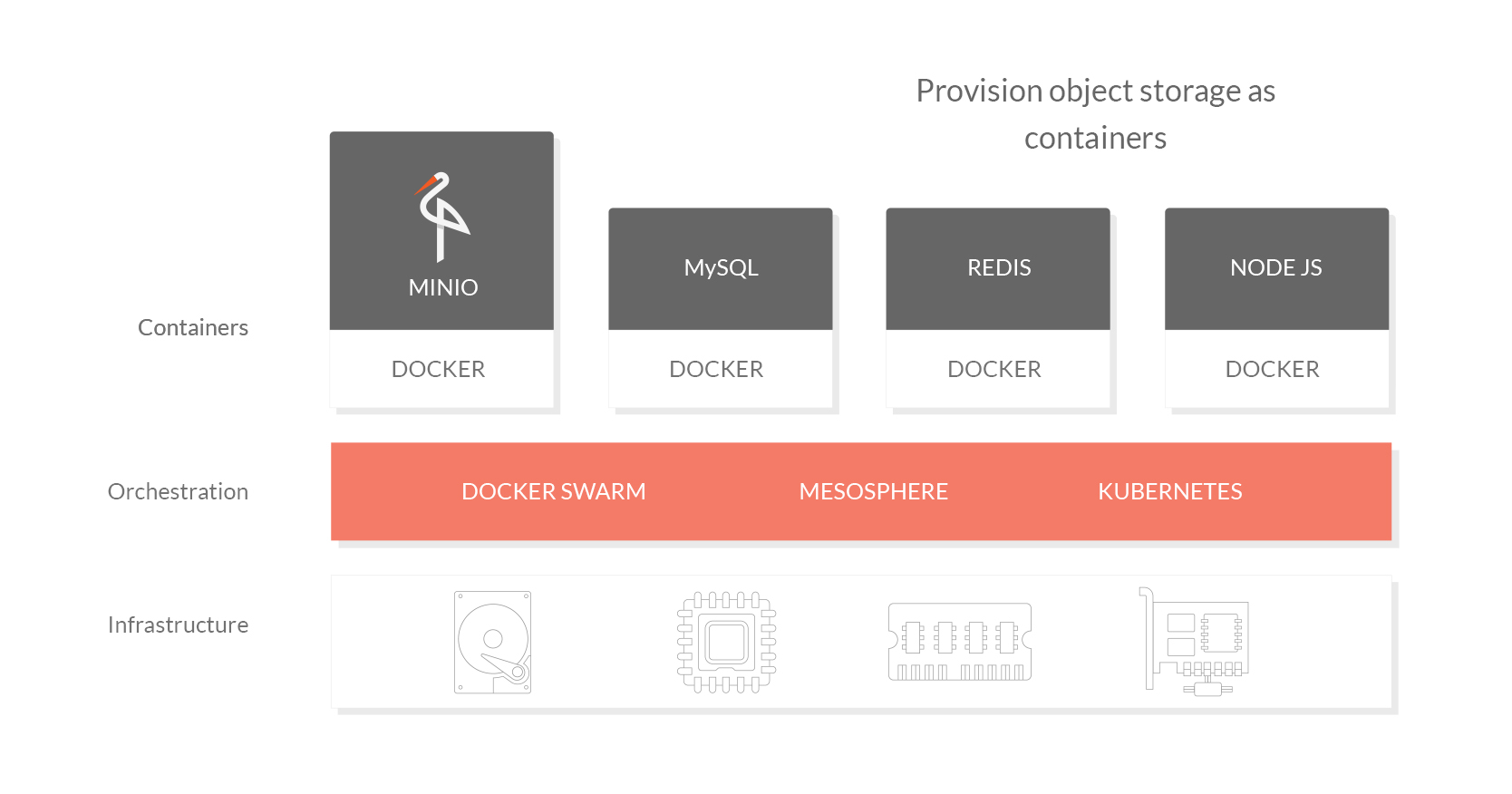mirror of
https://github.com/minio/minio.git
synced 2025-10-31 08:11:19 +01:00
22 lines
2.2 KiB
Markdown
22 lines
2.2 KiB
Markdown
# MinIO Deployment Quickstart Guide [](https://slack.min.io) [](https://hub.docker.com/r/minio/minio/)
|
|
|
|
MinIO is a cloud-native application designed to scale in a sustainable manner in multi-tenant environments. Orchestration platforms provide perfect launchpad for MinIO to scale. Below is the list of MinIO deployment documents for various orchestration platforms:
|
|
|
|
| Orchestration platforms |
|
|
|:---------------------------------------------------------------------------------------------------|
|
|
| [`Kubernetes`](https://min.io/docs/minio/kubernetes/upstream/index.html#quickstart-for-kubernetes) |
|
|
|
|
## Why is MinIO cloud-native?
|
|
|
|
The term cloud-native revolves around the idea of applications deployed as micro services, that scale well. It is not about just retrofitting monolithic applications onto modern container based compute environment. A cloud-native application is portable and resilient by design, and can scale horizontally by simply replicating. Modern orchestration platforms like Kubernetes, DC/OS make replicating and managing containers in huge clusters easier than ever.
|
|
|
|
While containers provide isolated application execution environment, orchestration platforms allow seamless scaling by helping replicate and manage containers. MinIO extends this by adding isolated storage environment for each tenant.
|
|
|
|
MinIO is built ground up on the cloud-native premise. With features like erasure-coding, distributed and shared setup, it focuses only on storage and does it very well. While, it can be scaled by just replicating MinIO instances per tenant via an orchestration platform.
|
|
|
|
> In a cloud-native environment, scalability is not a function of the application but the orchestration platform.
|
|
|
|
In a typical modern infrastructure deployment, application, database, key-store, etc. already live in containers and are managed by orchestration platforms. MinIO brings robust, scalable, AWS S3 compatible object storage to the lot.
|
|
|
|

|